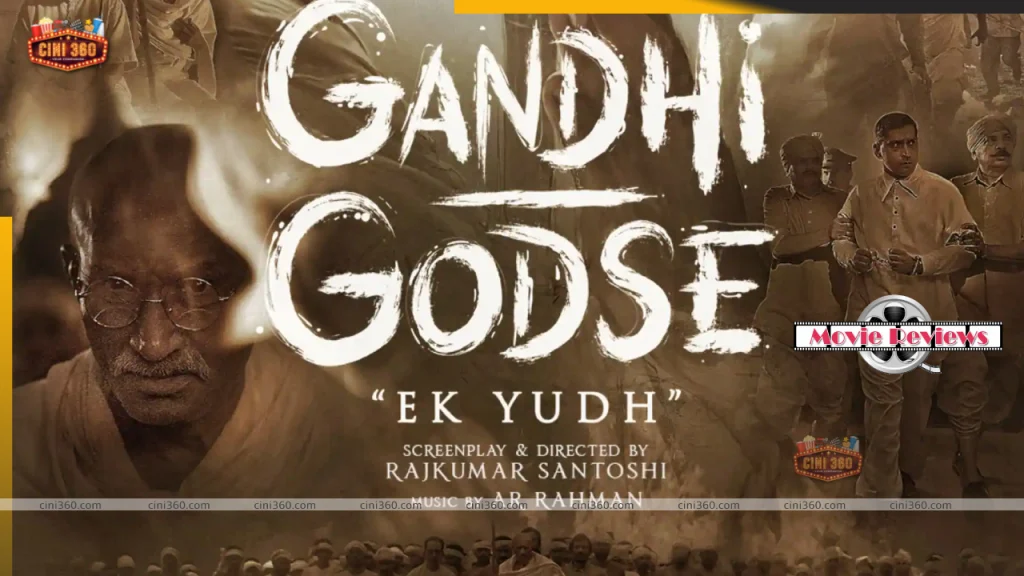Review of Gandhi Godse Ek Yudh: Rajkumar Santoshi’s attempt at revisionism is tarnished by his attempt to walk a tightrope and trip over his own feet.
Gandhi Godse Ek Yudh movie cast: Deepak Antani, Chinmay Mandlekar, Tanisha Santoshi, Anuj Saini
Gandhi Godse Ek Yudh movie director: Rajkumar Santoshi
Gandhi Godse Ek Yudh movie rating: 1.9 stars
It may be an intriguing exercise to look back at historical characters with the advantage of hindsight. In his “Gandhi Godse Ek Yudh,” Rajkumar Santoshi poses the hypothetical issue, “What if Godse’s deadly attempt on the Mahatma had failed?” What if they were allowed unrestricted time to talk to one another? Would Nathuram Godse, one of the most despised figures in contemporary history, have had a change of heart or diluted his ideology?
Santoshi’s attempt at revisionism, however, is tainted by his attempt to balance his positions and resulting stumbling. What we see instead is a series of equally weighted back-and-forth cuts between Gandhi (Deepak Antani) and Godse (Chinmay Mandlekar), as they go about their business: the former attempting to quell the raging passions of people and a nation on the verge of Partition, the latter growing increasingly enraged by the deteriorating situation. A looping sequence of scenes of reconciliation and anger creates a false equivalency that is both innocent and cunning.
The portrayal of Gandhi by Antani is excellent. He manages to pull off the physical look of the dhoti-glasses-charkha in one occasion, as well as his happy face that is always ready to turn the other side. Mandlekar is made to be a one-dimensional hothead who constantly defends the murder of one of the greatest pacifists in history by slamming him as the man who didn’t put the interests of the Hindu community above all and who forced a love of Muslims down reluctant throats. Mandlekar is made to constantly rail and flare his nostrils.
One of the movie’s goals is to dispel the false rumours that have been spreading on WhatsApp groups that he promised to give Pakistan millions of dollars. Gandhi is shown chastising Godse for his misdeeds, saying, “nihaththon pe vaar karna koi dharm nahin sikhata” (no religion advocates aiming at defenceless people). That’s fine and all, but the Mahatma is trying to teach the guy he has “forgiven” much more than that, as he is gradually proven to be disconnected from how the newly created government actually works.
In these post-truth times, what if fictitious forgiveness were expanded and made into reality? People in the theatre laughed as Godse proclaimed that Gandhi was drinking “bakri ka doodh” when people were dying because this coarseness was more palatable than dull speeches on the “ekta, vividhta, and vishaalta” of the nation.
Through the use of a young lady (Tanisha Santoshi, the director’s daughter) who is forced to choose between serving the country and a decent young man, the movie attempts to examine Gandhi’s peculiar views on love and chastity (Anuj Saini). But much like the movie, it is done awkwardly.




